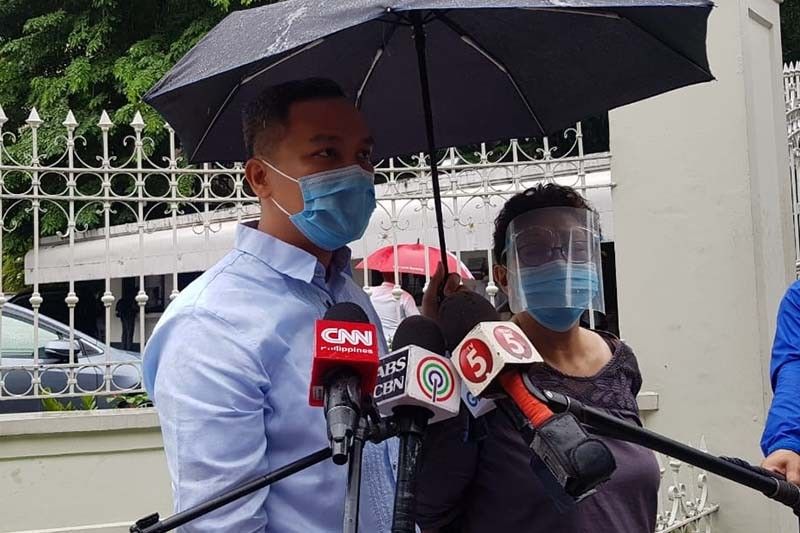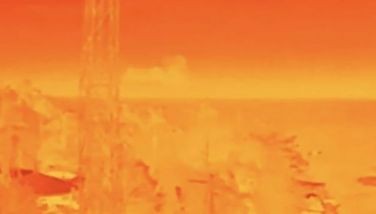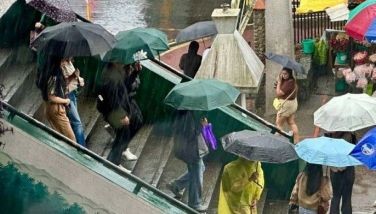Citing previous experience of abuse, Sanlakas asks SC to void part of anti-terrorism law

MANILA, Philippines — Progressive group Sanlakas on Monday assailed the constitutionality of the Anti-Terrorism Act of 2020, the eighth legal challenge that the contentious new law is facing before the Supreme Court.
Sanlakas, a multi-sectoral people’s alliance and party-list organization, filed a Petition for Certiorari on Monday. The group specifically asked the SC to strike down Section 4 of Republic Act 11479 — the provision that defines terrorism — as null and void for violating the Constitution.
They also prayed for the issuance of a temporary restraining order against the cited provision of the law, which is due to come into force this weekend.
Sanlakas joins other petitioners, including Framers of the Constitution, lawmakers and trade unionists in challenging the anti-terrorism law before the highest court in the land.
‘Subjective features’ up to law enforcers’ perception
The group anchored their petition on the Sec. 4 of the law, which they said should be struck down following the void-for-vagueness principle.’
Section 4(e) of the Senate bill defines “Terrorism,” and part of the section part reads: “That, terrorism is defined in this Section shall not include advocacy, protest, dissent, stoppage of work, industrial or mass action and other similar exercises of civil and political rights.”
However, the same section says that this only applies if those activities “are not intended to cause death or serious physical harm to a person, to endanger a person’s life, or to create a serious risk to public safety.”
Taken together, “this creates the dangerous situation where the very acts protected and guaranteed by the 1987 Constitution can actually be, as applied on the ground, interpreted or assumed—due to the vagueness of the subjective feature—by the police and military operatives to be the crime of terrorism,” Sanlakas said.
They added that due to the “subjective features” of the law, the perception of the police or military of the law would prevail.
“It is a fact of our life, based on long actual experience, that the police and military agents of the State have so frequently abused and misused their armed authority especially when it comes to their dealings with workers in the picket lines, urban poor community dwellers in demolition sites, farmers demanding land ownership, and demonstrating students,” Sanlakas stressed.
Under the new law, security personnel may be authorized by the Anti-Terrorism Council—another provision that law experts flagged—to detain a person suspected of committing terrorism for 14 days, extendible by another ten days, before bringing him to judicial authority.
The Anti-Terrorism Council is composed of Cabinet officials, some of whom have history of red-tagging members of human rights groups, lawyers, journalists and even party-lists.
Sanlakas added that advocacy or protest is driven by collective intent. A stoppage of work, for example, is meant to seek better work conditions. Such activities “are precisely intended to bring about a desired result, including the change or reform of government policies, decisions and actuations.”
“How can these Constitutionally protected and guaranteed acts now be dragged and considered as crimes of terrorism if accompanied by intent and purpose which are vague, not clearly defined, bereft of standards, and susceptible to the self-serving and gratuitous interpretations of police and military enforcers?” Sanlakas added in their petition.
The Supreme Court last week consolidated the first four petitions filed in relation to the Anti-Terrorism Act of 2020. It gave the government officials named as respondents in the pleas ten days to file their comment.
Since last week’s en banc session, three more petitions were filed. Many other groups, including one with retired SC Senior Associate Justice Antonio Carpio, said they will challenge the law once it becomes implemented.
- Latest
- Trending































